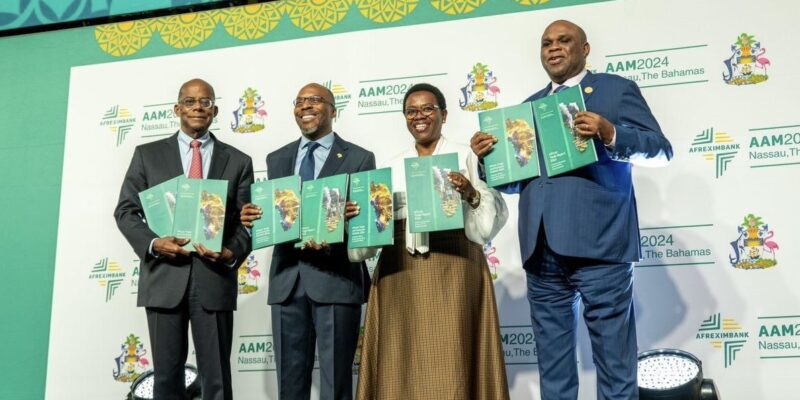The African Trade Report 2024 has been launched in Nassau, Bahamas, outlining how the African Continental Free Trade Area (AfCFTA) can mitigate carbon emissions, increase trade, and champion economic growth.
The report, themed “The Climate Implications of AfCFTA Implementation,” was presented by African Export-Import Bank Board Chairman and President, Professor Benedict Oramah, Dr Monique Nsanzabaganwa, Deputy Chairperson of AUC, Dr Roger Ferguson, former Vice-Chair of Federal Reserves USA on Wednesday.
In presenting the findings, Afreximbank Group Chief Economist, Dr. Yemi Kale, revealed that African economies contributed only about 3.78 percent to global greenhouse gas emissions, compared to 14 percent from the United States and nine percent from the European Union.
Kale noted that in 2022, per capita emissions in African nations were 1.09 tons of carbon dioxide, significantly lower than 15.17 tons in the United States, 6.17 tons in the European Union, and 25.83 tons in the United Arab Emirates.
Despite their low emissions, African countries are among the hardest hit and least resilient to the impacts of climate change.
Africa is geographically prone to adverse climate events.
“It is the most vulnerable region in the world to droughts and floods,” Kale said.
He also discussed economic growth among African nations, citing International Monetary Fund statistics projecting an increase from 3.2 percent in 2023 to 3.5 percent in 2024.
However, the report indicated that despite this growth projection, African countries continue to face high inflation rates, debt burdens, and borrowing costs for development finance amid geopolitical instability, infrastructure inadequacy, growing poverty, and food insecurity.
The report highlighted that food insecurity rose sharply in Africa in 2023, with an estimated 13 percent of the population suffering from acute food insecurity.
Additionally, of the 1.1 billion people globally classified as poor, about 38 percent live in Africa.
“The number of people on the continent living in extreme poverty increased from 36 percent of the population in 2022 to around 38 percent, or 462 million people, in 2023,” the report stated.
It also emphasized the high debt burden exacerbating the continent’s difficulty in financing development projects, adding to the region’s economic challenges.
In 2023, Africa’s external debt was estimated at US$1.13 trillion, with an average debt-to-GDP ratio of about 36 percent.
WARNING! All rights reserved. This material, and other digital content on this website, may not be reproduced, published, broadcast, rewritten or redistributed in whole or in part without prior express permission from ZAMBIA MONITOR.













Comments